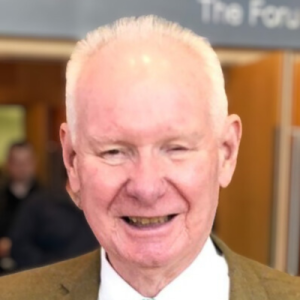Mike Bess
Board Member/Advisor/Fellow

Mike has over forty-five years of experience working in the field of sustainable development. Over the course of his long and distinguished career, he has focused on key areas including the design, formulation, and implementation of policies related to clean energy, climate change mitigation, and natural resource management. His approach has centered on community-based methods aimed at enhancing resource management and conservation practices for the mutual benefit of people and their communities. He has also been very active with UNFCCC’s efforts to assist countries in measuring and accounting their emissions through “measuring, reporting, and verifying (MRV)” their national greenhouse gas (GHG) emissions. Throughout his extensive and impactful career, Mike has worked in over 60 countries in Europe, Africa, and Asia, having worked and collaborated with nearly every major international development agency, from the UK’s Foreign and Commonwealth Development Office (FCDO, formerly Dfid), the European Commission, SIDA, NORAD, USAID, SDC, DANIDA, GiZ, JICA, to the World Bank, IFC, EBRD, EIB, KfW, FMO, AfDB, as well as numerous international companies, and NGOs ranging from CARE, WWF, AWF, Aga Khan Foundation, Environmental Defense Fund (EDF), Friends of the Earth, among others.
Mike’s early work included community-based natural resource management in fragile ecosystems and protected areas, namely forests and parks in the north-western U.S. with Native Americans, and later in central and east Africa (particularly Kenya, Uganda, Rwanda, Tanzania, Malawi, and Zambia). Mike also worked to support northern Sudanese Nubian irrigation co-operatives along the river Nile to organize water co-op Unions/Collectives (ten or more coops in one Union) to improve local water management. During the late 1980s and early 1990s, Mike expanded his scope of work to include working with “communities and sustainable forests and wildlife” in protected areas in Central and Eastern Africa. Mike’s enduring commitment to community-based initiatives remains evident with communities in the UK where he is involved in the establishment of community benefit cooperatives, aimed at promoting the growth and utilization of renewable energy resources. This initiative not only encourages community investment but also addresses “fuel poverty” by enhancing access to clean energy sources.
Mike’s wide-ranging career also includes working with the European Commission (EU) where, together with colleagues from various groups and institutions across the EU, he contributed to the development of models aimed at illustrating the advantages of scaling up renewable energy generation. Furthermore, following the adoption of the Kyoto Protocol agreement, Mike co-founded the UK’s “emissions trading group,” where he advocated for the UK government to set up the world’s first national trading scheme. During this time he also served on the European Climate Change Programme, Task 1 (emissions trading ) and Task 2 (Clean Development Mechanism). In this capacity, he contributed to shaping the framework that allowed EU companies to harness “carbon credits” (Certified Emission Reductions) to meet their national emission reduction targets. Mike also worked closely with industry associations in Austria, Germany, The Netherlands, and the UK to prepare them for the implementation of the EU’s Emissions Trading Scheme. His work extended to continued collaboration with companies and groups in Eastern Europe, Africa, and Asia, supporting them in the generation, acquisition, and application of “carbon credits” to fulfill their national and international greenhouse gas (GHG) reduction objectives. Drawing from this extensive experience, he also provided valuable support to the California Air Resources Board in shaping and preparing their “Cap-and-Trade” program.
Mike speaks multiple languages proficiently including English, German, French, and Arabic. He holds a B.A. in Economics, Government and International Affairs from Beloit College, a Master’s in Policy and Public Affairs from the Princeton School at Princeton University, and was an international Rotary Fellow with the University of Khartoum’s African and Asian Studies Institute, and the American University in Cairo (AUC).
